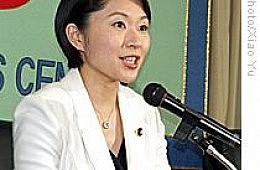By Akli Hadid
October 18, 2014
278
45
0
7
330 Shares
Some young Koreans don’t feel comfortable applying for a job until they get at least a 900 on their TOEIC test; the kind of score that even a native speaker might have trouble getting. While parents are trying to help their children meet job market expectations, the government is taking different measures to curb the enthusiasm for English.
Those measures include banning cram schools from advertising that they prepare elementary school children for high school examinations, as well as reducing the number of native English speakers and planning to makethe university entrance examination’s English portion easier. However, such measures will be counterproductive as long as the job market maintains an abnormally high expectation of English proficiency.
The unemployment rate for Koreans aged between 15 and 29 surged to 10.9 percent in February this year. Overall employment in that age bracket is an unusually low 40 percent. Many young Koreans are doing their mandatory military service; while others take years off to study abroad or do volunteer work. These latter two experiences are also among employers’ expectations, though in most cases are not mandatory.
Eighty-two percent of South Korean high school graduates go to university. Although a high CSAT score, referring to the Korean university entrance examination, is necessary in order to attend the country’s elite universities, the exam’s failure rate is in fact very low. Most low-ranking universities will accept low, but passing, CSAT scores.
Unlike universities in most countries, Korean universities are believed to have a completion rate close to 100 percent, far higher than the rate in most countries. Such high university attendance and completion rates force Korean companies to find other ways to differentiate between applicants, and unrealistic English expectations seem to be a preferred method.
Koreans spend $17 billion a year and have hired 30,000 native English speakers to meet the demands of concerned parents who want their children to match the expectations of the job market. English immersion kindergartens and private elementary schools started blossoming before the government attempted to put a halt to it, saying it hinders “students from improving their ability of learning Korean.”
Wealthier parents have resorted to sending their children to schools in English-speaking countries. 500,000 families are said to be living apart, usually with mother living with the children abroad while the father stays in Korea.
The current government is attempting to reduce the amount of time and money Koreans spend on English education. The government cut 2,500 native speaker English jobs, as the Seoul office of education decided to stop hiring native English teachers, a decision imitated by the port city of Incheon’s office of education recently. Universities have put very stringent requirements on native teachers’ employment, demanding either a Ph.D. or a Masters’ degree and several years’ experience.
What seems contradictory is that the government is taking steps to reduce what some have dubbed “English fever,” by making it harder for Koreans to access quality English education. This leaves Koreans confused and frustrated, as the root cause is not being addressed: high expectations from employers regarding English ability by requiring high standardized test scores. Perhaps the government should have banned employers from demanding high test scores first, before making access to English education more difficult.
Akli Hadid is a Ph.D. candidate specializing in language education in Korea.
Facebook278
Twitter45
Google+0
LinkedIn7
RELATED STORIES
LATEST BLOGS
COMMENTS
Please read our comments policy.
Note that all comments are moderated and your comment may not appear immediately.
Note that all comments are moderated and your comment may not appear immediately.



No comments:
Post a Comment
Note: Only a member of this blog may post a comment.